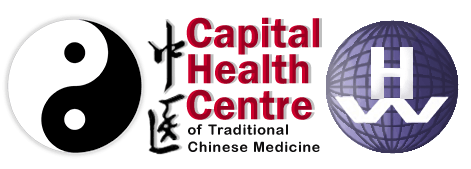Winter Related Care
Traditional Chinese Medicine (TCM) has valuable, ancient insights into seasonal care, and more specifically for staying warm in the Winter and preventing seasonal illnesses and diseases. It is essential to consider your overall body balance, as it is important to balance the yin and yang qis. In winter, it is more common for people to have yang deficiencies, as yin is characterised by the cold and dark, which is prominent in winter.
The environment in which we live and the seasonal changes affect our body and feelings. As we enter Winter the energy or qi in our bodies falls down, which is why preservation and conservation of energy is important during this time. This is a seasonal cycle and our energy is often lifted again with the coming of Spring. Resting and keeping warm in winter often leads to regrowth and rejuvenation in the Spring.
In the colder months the energy in our body is much deeper, so we need to focus on eating foods and doing activities and treatments which warm our bodies to the core. It is a common belief in TCM that "for optimal health and wellbeing, it's best to live in accordance with the seasons". In this way, throughout the year we can adjust and adapt to best suit our environment and the weather around, allowing our bodies to function holistically. This process follows that our bodily functions are somewhat aligned with nature, and it is important for our body balance to try our best and honour these changes seasonally.
This approach establishes a connection with the environment and can also prevent the occurence, duration, and severity of seasonally prominent diseases. TCM is beneficial for immunity boosting within these colder months, as these recommendations often aid digestion, circulation, energy, and emotional balance.
According to TCM, winter is associated with the water element and kidneys. In this time it is important to slow down your everyday life, conserve energy, and nourish your yin, as an overbalance of yin as a product of this season can often
"contribute to depression and loneliness". So, it is important to prioritise warmth which can balance out the yin and yang in your body. You can do this by following seasonal care TCM recommendations which consider particular activities, exercise, seasonal eating, and teas specific for winter, and how TCM herbal medicine and therapies can help with immune support, which is essential during these colder months.
Activities and Outlook
During winter, there is a lack of Yang's warmth in the body and it is vital to focus on keeping the body warm. Ancient TCM justifies staying inside, getting lot of rest, and sleeping with the sun. Limiting exposure to the cold and wind is also important.
In winter, as it is colder externally, reframing your mind and body to an internal focus can help you fill your days with meaning and connectedness. You can approach this time thoughtfully through meditation, journaling, reading, flowing movement and exercise, and with gatherings of family and friends, creating emotional warmth.
Although rest is essential during these months, exercise is also important to regulate your body. Walking and fluid forms of movement such as Tai Chi, Qi Gong, and yoga are beneficial. In your day-to-day life you should also maintain hydration, and spend more time in the sun to
"replenish Yang qi".
Seasonal Eating
In winter it is important to focus on eating foods that are warm both in temperature, and that have a warming effect on the body. Foods such as root vegetables, cooked and warm foods, and spices are important during winter in TCM for balancing your Yin and Yang and for nourishing your kidney function. It is best to avoid foods that are cold or raw, and increase meals into your diet such as soups, stews, congee, and other hearty, warming foods.
Vegetables that are black, red, orange, or yellow in colour often have warming properties, such as
eggplants, dates, mushrooms, kidney beans, carrots, capsicums, leeks, onion, garlic, and ginger. Traditional dietary care helps to "regenerate and repair" your body in winter to help store heat and reduce the cold that often "slows and depresses both metabolism and circulation". Warmth in the digestive system can promote a stronger immune system in winter and can increase your body's overall health and balance, preventing illness.
Teas for Winter
TCM recommends teas by the season, and in winter, oolong tea, black tea, puer tea, goji tea, and citron tea are suggested. In TCM the benefits of black tea is that it has warming properties which can support your body in the cold and with any qi blockages or imbalances. Drinking black tea in the morning can help promote blood circulation and warm your body. In winter, having a cup of black tea with milk in the afternoon can also enhance your immune system and prevent coldness. In winter your qi is weakened and black tea can naturally help to raise the qi in your body and provide a warming effect.
Immune System Support
A healthy lifestyle and taking the TCM suggested measures in winter can serve as your body's first line of defense to common colds and other illnesses caused by a weaker immune system. However, traditional Chinese herbs and therapies can also help to strengthen immunity. For example, herbs and spices such as ginger, cinnamon, astragalus, goji berries, dang gui, licorice root, and peppermint can be beneficial for your immune system, warmth, and overall health which is especially vital during this colder period.
In TCM gua sha treatment can help stimulate a healing response in your body, acupuncture can help to reduce inflammation and increase circulation, cupping can help to increase blood flow and alleviate tension, and moxibustion can help to increase overall immunity. TCM also treats the body holistically and contributes to overall health and wellbeing, as well as being beneficial for balancing the qi within your body and alleviating yang deficiencies, which are prominent during winter.
Following some of these simple beliefs from TCM can help you to stay warmer and healthier in these colder months.




